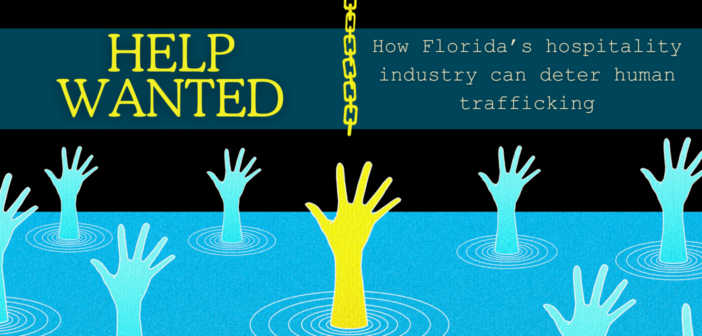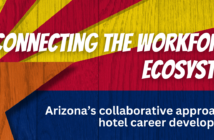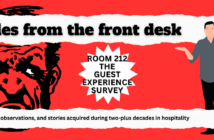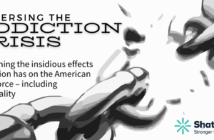How Florida’s hospitality industry can deter human trafficking
by STEFAN BURKEY
It took an observant hotel worker to spot and affect the rescue of two young victims of commercial sex trafficking in August at a motel in Lake Worth Beach. He notified the police after entering a room where the children were on the bed with one of the arrested suspects, with a condom in reach.
It was another instance of a crime that’s all too common in Florida and affecting the hospitality industry. While more human trafficking is tracked in California and Texas, Florida ranks third, with 781 cases in 2022, versus the national average of 169.
Sex trafficking, specifically, tends to be hidden in plain sight in hotels, largely due to lack of staff awareness and training. Also aggravating the risk is the potential of compromised ethics regarding customer care among employees who may have been subjected to less-than-thorough background checks. Further, automation combined with the nature of hotels, where customer privacy is the rule, fosters the anonymity that encourages traffickers.
FLORIDA ACTS TO JAM TRAFFICKING
Human trafficking is a problem, and one many states are addressing legislatively.
That includes Florida, which in 2019 passed a law requiring that public lodging establishments must put policies in place for training employees to recognize and report signs of human trafficking. The training 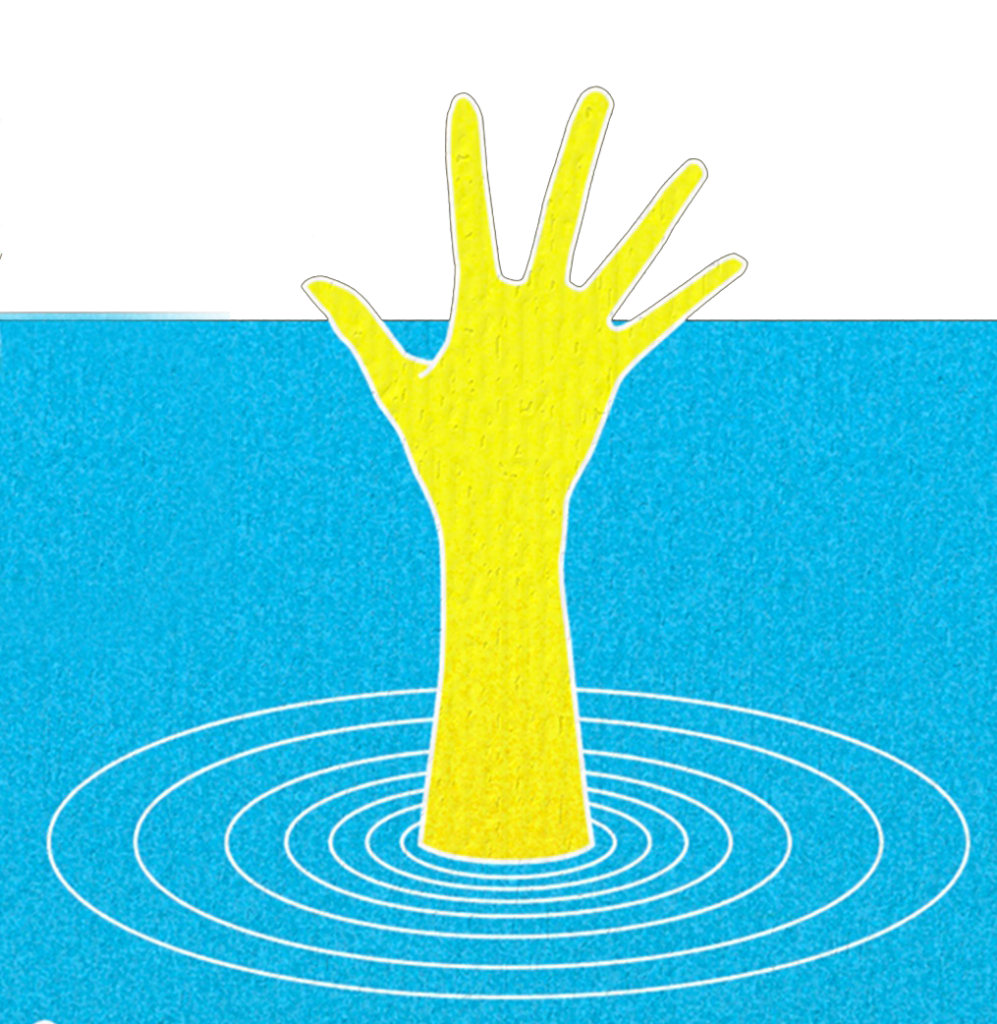 must be conducted annually and within the first 60 days of a new employee’s hire.
must be conducted annually and within the first 60 days of a new employee’s hire.
Further, Florida passed a new law this year that cracks down on establishments that don’t follow the rules. It limits the time for them to achieve compliance and allows no second chances before assessing fines.
Even in jurisdictions where training isn’t mandated, insurers have put their hotel clients on notice to take steps to head off traffickers.
Doing nothing poses an ethical and moral risk. But the legal risks (complicity), operational risks (business disruption), and reputational risks (financial hits) make a case for keeping appropriate liability coverage.
RISK MANAGEMENT: DETAILED POLICY AND GUIDELINES
Risk management starts with a formal policy that reflects the organization’s values even as it provides guidelines on preventing trafficking. This should be paired with training and education that builds employee awareness about ways to prevent trafficking. It’s also key to develop a standard reporting structure and procedures.
Training can cover considerable ground, but too much information is better than not enough. Misidentification of a trafficking situation happens when employees are inadequately trained and can put a hotel in a tough position. Here’s what training must cover:
 1. Definitions of “human trafficking.” This can take various forms; employees need to be aware of what they may be dealing with when signs of problems arise.
1. Definitions of “human trafficking.” This can take various forms; employees need to be aware of what they may be dealing with when signs of problems arise.
- Sex trafficking, including “commercial exploitation of children,” is when an individual under the age of 18 is manipulated or forced to engage in sex acts for someone else’s personal gain. It is not prostitution.
- Forced labor is when victims are compelled to work for little or no pay, often in manufacturing or agribusiness.
- Domestic servitude is when victims are forced to work in isolation as nannies, housekeepers, or domestic help for little or no pay.
2. Indicators of risk situations. There are common indicators across functional areas – from front desk and housekeeping to food and beverage – and including signs of possible victims. They may exhibit fear, tension, anxiety or nervousness, as well as show signs of physical abuse, restraint, or confinement and the appearance of malnourishment, poor hygiene, and sleep deprivation.
Housekeeping, maintenance, and room-service staff need to be especially alert to guests who constantly post “do not disturb” signs and frequently request services like extra towels but deny staff entry to the room. Another sign is excessive amounts of cash in a room and children’s items present even though no children are registered to the room.
The concierge, front desk and security staff should be vigilant about signs such as minors with patrons at odd hours and guests requesting information or access to adult services. Other concerns are those who regularly come and go through non-lobby entrances and cars parked in a way that obscures the license plates.
REPORTING PROTOCOLS
While employees should be equipped with a process and contacts for reporting suspicious behaviors, they never should attempt to confront a suspected trafficker or victim directly. They must be coached on following internal protocols – starting with notifying management and security about their concerns.
Appropriate agencies to contact include:
• Local law enforcement (911)
• The Department of Homeland Security (1-866-2-ICE)
• The National Human Trafficking Hotline (1-888-373-7888)
• Or text HELP or INFO to BeFree (233733).
The U.S. Department of Homeland Security’s Blue Campaign to end human trafficking offers the hospitality industry an extensive toolkit with components that are geared to specific areas of customer service, such as the front desk, housekeeping, concierge and security, and food and beverage.
 Stefan Burkey is the hospitality practice leader for HUB International Florida. In this role, he oversees insurance placement solutions for owners, developers, and operators from limited-service hotels to full-scale resorts. Stefan and his team clearly understand the financial needs and exposures associated with the hospitality industry, and their singular focus has generated profound market knowledge and significant buying power for HUB clients throughout Florida and the U.S.
Stefan Burkey is the hospitality practice leader for HUB International Florida. In this role, he oversees insurance placement solutions for owners, developers, and operators from limited-service hotels to full-scale resorts. Stefan and his team clearly understand the financial needs and exposures associated with the hospitality industry, and their singular focus has generated profound market knowledge and significant buying power for HUB clients throughout Florida and the U.S.

